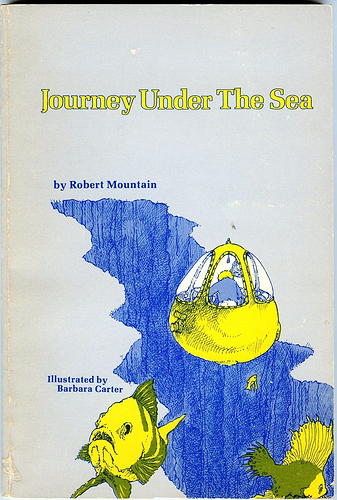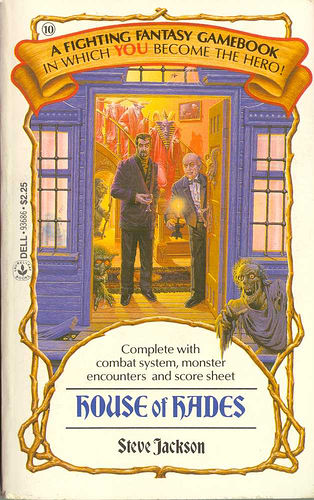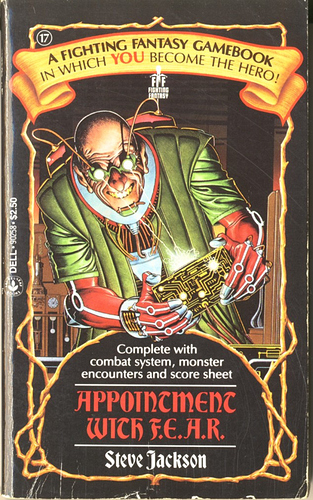It’s a fascinating paper. Here’s a sample paragraph.
Exploring the “gamification” of children’s books by the CYOA game book series allows us to return to a kind of neoliberal “ground zero” and trace one of the first important instances in which gamified notions of free, individual choice first came to shape mass culture in the United States. As one adult would later reminisce in a fan letter to Edward Packard, “we [now] have virtual reality and digital frontiers, but the ability of your books to transport me to other worlds, to captivate, motivate and elucidate was truly won- drous.” What is more, while most critical scholars of neoliberalism have (understandably) focussed on schooling and education in order to explain how exactly adolescents became “children of the market,” examining CYOA books allows us to see the central role that culture played in not only reflecting neoliberal ideology, but also reproducing it in younger generations.
“Cover Your Own Ass” books?
I too enjoyed those kinds of books as a kid, and I wasn’t going to read it either, but then I did anyway. 
It wasn’t as annoying as I expected, mostly because they basically undermine the premise of the headline by the end of the interview. I got sucked in by the click bait, dammit. 
What I did find interesting, though, was the idea that right-wingers explicitly cite these books as influencing and informing their thinking later on in life. Eric Greitens (a truly despicable piece of shit) was particularly surprising to me, mostly because he always came off as the sort of guy who was proud of having been the sort of kid who would have kicked the snot out of other kids who would dare be nerdy enough to read a book for fun.
OTOH, it makes perfect sense that that sort would make the shallowest interpretation of a choose-your-own-adventure book and learn exactly the wrong lesson from them.
The only real choice you could make was whether or not to read (or play, if you will) the CYOA book.
I remember when I boldly discovered that it was possible to read a CYOA book straight through from cover to cover, and get all the various options one after the other. When I was seven that was living dangerously. 
Exactly. It wasn’t about getting the “good” ending, it was about discovering all possible endings. I never read those books w/out using a finger (or two!) to hold my place so I could go back and try the other paths.
Savescum for life, yo!
TSR had a similar line, which I remember reading.
Yeah f5 forever!!!
I don’t recall that one, but it seems like it has some not-bad lessons that kids might need to learn sooner or later…
Because there was no way to reach Ultima. It’s there in the book. It’s on page 101. But no choices will get you there. You can only reach it by thumbing through the book and finding it. It even acknowledges that you had to cheat to get there.
So much for “Milton Friedman for Kids.” 
My favorite flavor of these things were the Fighting Fantasy books, which included a very basic combat system and required a couple D6s to play, effectively making them into little miniature solo dungeon crawls.
They had decent replayability, too, if I’m remembering correctly. I definitely spent enough time with a few of them that I could picture some of the covers as soon as I read the titles. These two, for example:
at the peak of the fad, Harry Harrison wrote a Stainless Steel Rat sequel in the CYOA style. I don’t remember it being very good, but I loved Slippery Jim enough to devour anything SSR related anyhow.
I keep getting the stainless steel rat and Bill the galactic hero mixed up. Which one came from the planet of Dirt? I can never remember.
I never read BTGH, somehow. but I recall Jim recounting how humans were originally from a planet known as either Dirt or Earth, depending on which translation you read. But maybe Harrison used it in BTGH, too?
Jim came from the farming planet with the porcuswine.
Bit o heaven if I remember correctly.
Fascinating—I’ve never heard of this before. I wonder if glass and other materials suffer the same problem (and same solution). And is it possible to scrub oxygen to the point the radionuclide content is as low as it was pre-WWII?
“I thought you just liked reading books and crying”



